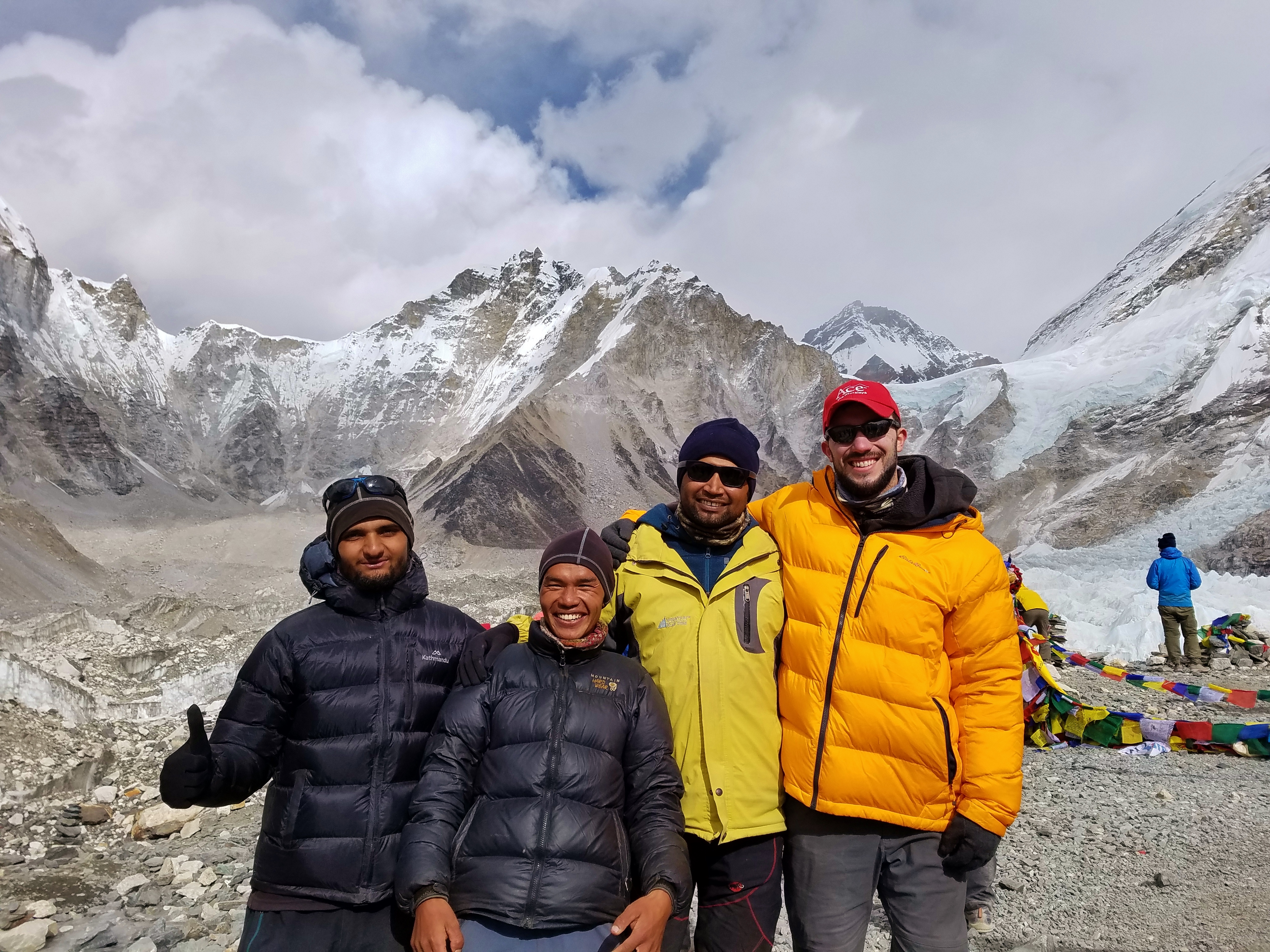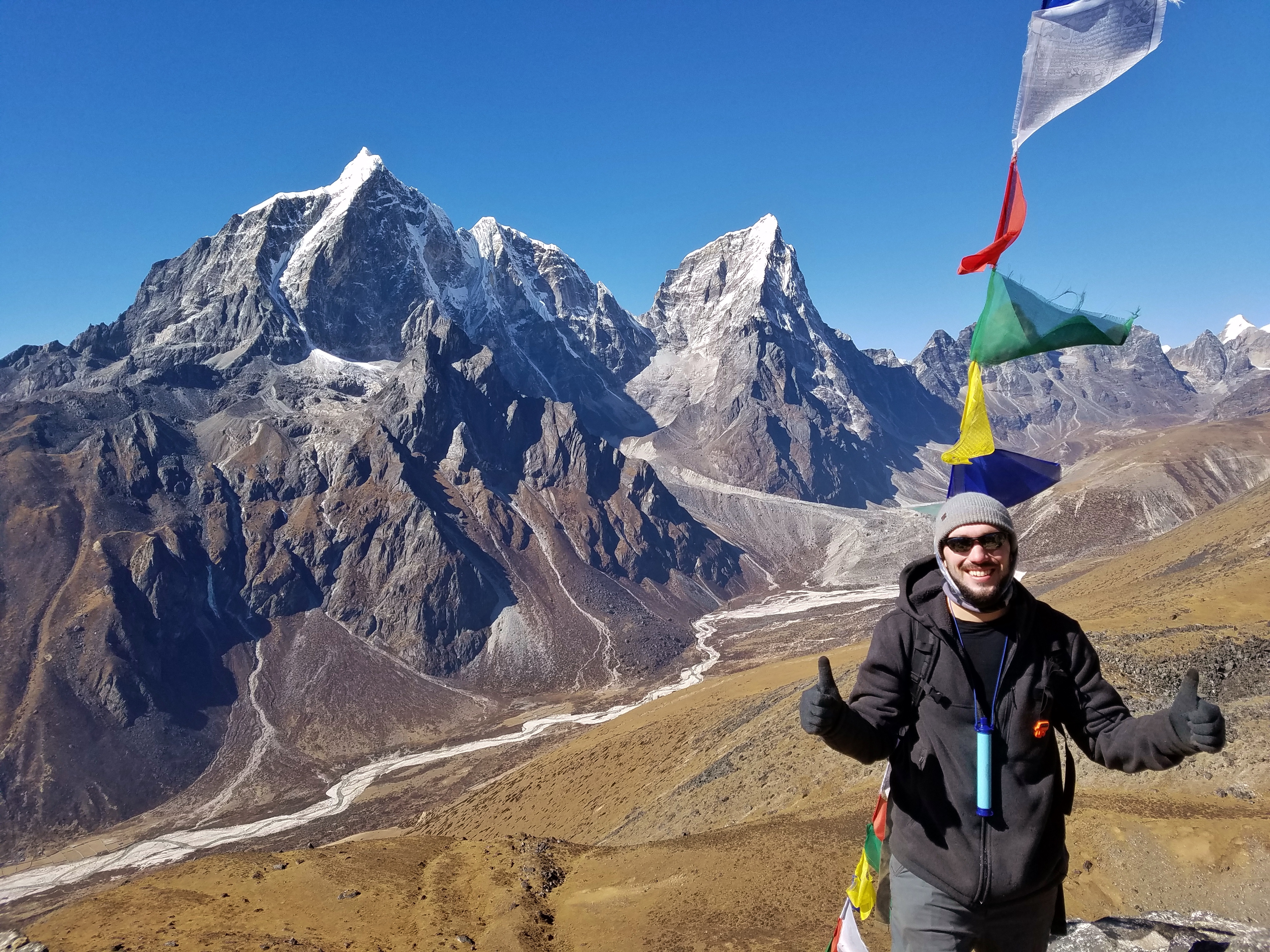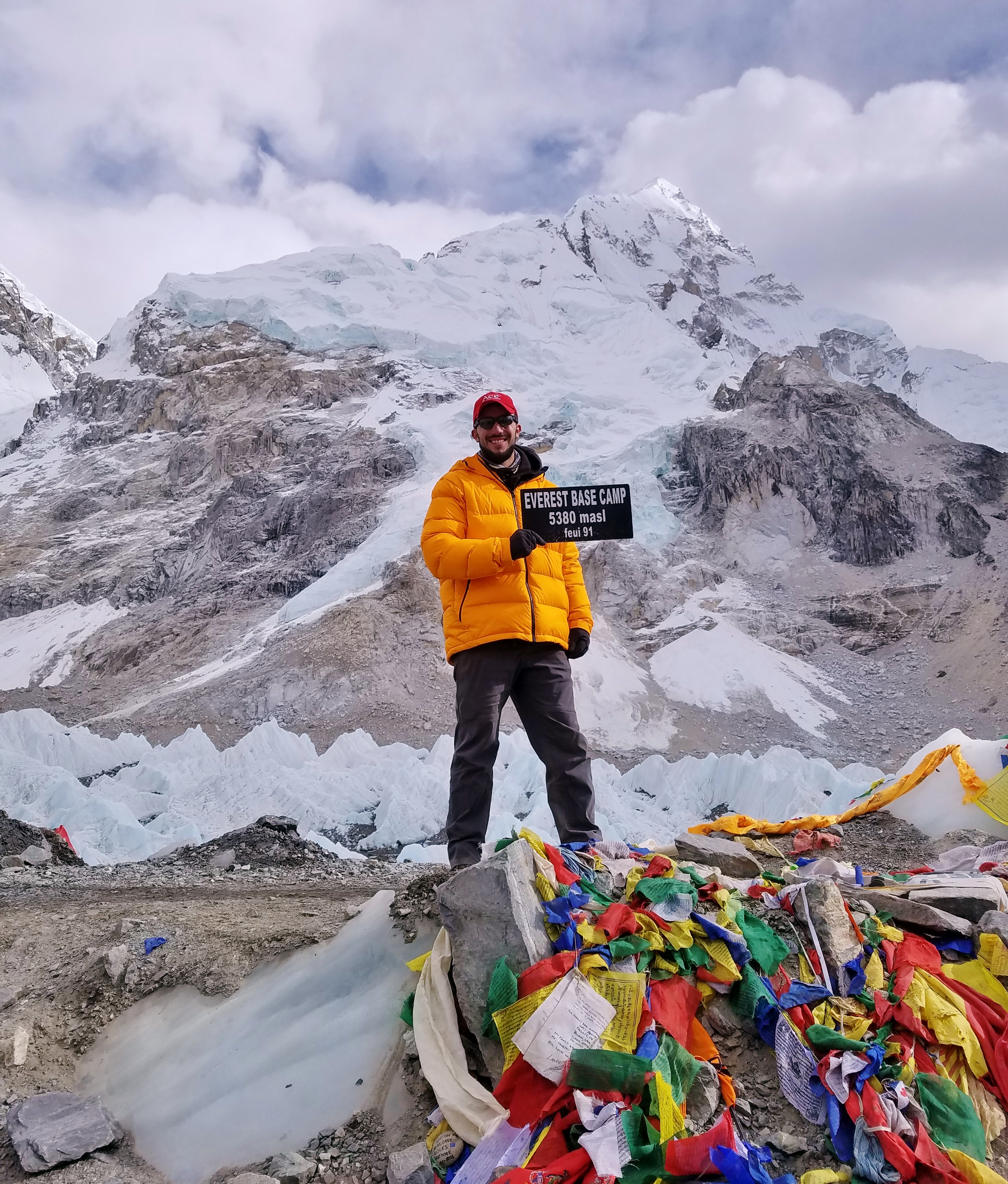
Off-the-clock: In the world’s highest mountains
As a Colorado native, Antonio Flori has seen mountains his entire life.
But for his vacation in November 2018, he decided to go big: The Himalayas in Nepal.
Flori has worked at Denver Water since he was a college intern, becoming an engineer on the corrosion control team in 2012. Flori has climbed at least 10 of Colorado’s “14ers,” mountains whose peaks are more than 14,000 feet above sea level. He’s also climbed and hiked in the Patagonia region in Chile.
But a two-week trek through Nepal, to the base of the world’s tallest mountain, Mount Everest, was the opportunity of a lifetime.
“The Himalayas was a bucket-list item for me,” Flori said. “I’ve always wanted to see those mountains in person. I just couldn’t pass it up. I had to go.”
His trek with a group of 22 hikers started in Lukla, a small mountain town at the base of the Himalayas that is well known for its airport, considered the world’s most dangerous due to its 9,383-foot elevation above sea level and it’s single, short 1,729-foot runway that ends abruptly at the edge of a cliff.
[video width="1920" height="1080" mp4="https://denverwatertap.org/wp-content/uploads/2019/04/20181122_091147.mp4" poster="https://denverwatertap.org/wp-content/uploads/2019/04/Airport-poster-image-Lukla-Nepal-Fiori.png"][/video]
Lukla Airport, video credit: Antonio Flori.
By comparison, the shortest runway at Denver International Airport is 12,000 feet long. The shortest runway at Centennial Airport is 4,800 feet. Front Range Airport’s runways are 8,000 feet.
The hikers each carried a day pack while Sherpas carried additional gear for the group. Sherpas, the name for the Himalayan people who live in Nepal, are renowned for their climbing skills, strength and stamina at high altitudes.
“They were the most hard-working, open and welcoming people I’ve ever met. They never stressed over little things,” Flori said.
“We’d drag ourselves into a village and collapse after hiking with a day pack, but the Sherpas would drop their loads — like a refrigerator — and start playing volleyball,” Flori said. “I enjoyed getting to know them, and they made me completely rethink my perspective on some things.”
One of the earliest stops on their trek was the village of Namche Bazaar, at an altitude of 11,286 feet above sea level, where they spent a day allowing their bodies to adjust to the thin mountain air.
From Namche, the group hiked to a village called Tengboche. It sits at 12,700 feet and is home to a famous monastery that is known as a mandatory stop for hikers who hope to summit Mount Everest. Climbers and Sherpas participate in prayer ceremonies there, asking for safe passage before they climb.
“The night we stayed at Tengboche, I went outside and stood there for an hour looking at the sky,” Flori said. “There was no moon and it was freezing. But the shooting stars blasting over the peaks looked so close because of the altitude. It was incredible.”
At the next village, Dingboche, Flori hiked to the summit of Nangkartshang Peak, which sits at 16,676 feet. From there, Flori had amazing views of nearby massive peaks that soar more than 20,000 feet high, including Tobuche Peak and Ama Dablam.
The final stop before reaching the Mount Everest base camp was the village of Lobuche.
On the outskirts of the village, Flori and his group saw hundreds of stone markers and prayer flags placed as memorials for people who have died on Mount Everest and the surrounding mountains.
“It was incredibly humbling to see it,” Flori said. “If you’re looking to climb any summit, it’s a powerful reminder and message. You have to respect the mountains.”
After a week on the trail, Flori achieved a life goal and reached the base of Mount Everest.
But the most difficult day of the trek — and the most amazing — occurred when Flori, in a group of eight other hikers plus Sherpas, left the village of Gorak Shep, which sits at 16,994 feet, at 4 a.m.
They were headed for Kala Patthar, an 18,000-foot peak that offers an unobstructed view of Mount Everest’s summit.
Flori said he hiked on momentum and adrenaline, reaching the summit of Kala Patthar around 6 a.m.
“I was completely in awe,” Flori said. “It’s 10 degrees below zero, the Sherpa is playing this serene meditation music, there are shooting stars blazing across the sky, and I’m on top of an 18,000-foot mountain with the world’s tallest mountain in the background.”
The days of hiking into the Himalayan peaks and the altitude took its toll on Flori and the larger group. Of the 22 hikers that left Lukla, two had to be flown out via helicopter due to altitude sickness and another stopped halfway. Of the group that attempted to summit Kala Patthar, only four succeeded, including Flori.
Flori said he battled a strep throat and sinus infection during the trek, using antibiotics his doctor had sent with him on the trip. The high altitude and thin air also affected him, even though he was used to hiking Colorado’s mountains.
“When we were at Gorak Shep, the altitude affected me more than I thought it would. I wasn’t hungry. I would wake up gasping for air and couldn’t believe how much energy it took just to sleep,” Flori said. “But then, when I’d get up and look at the unbelievable view of the mountains around me, it was beyond worth it.”
Back home in Colorado, Flori now cooks the vegetarian dal and curry dishes he ate on the trek. And he’s already thinking about going back to Nepal.
“All of what I experienced there has stayed with me since I’ve been home, especially the appreciation I’ve gained for my loved ones,” Flori said.
“I’m lucky to be alive and healthy. This experience helped reconnect me to the important things in my life, and that’s the coolest part of the entire thing.”



